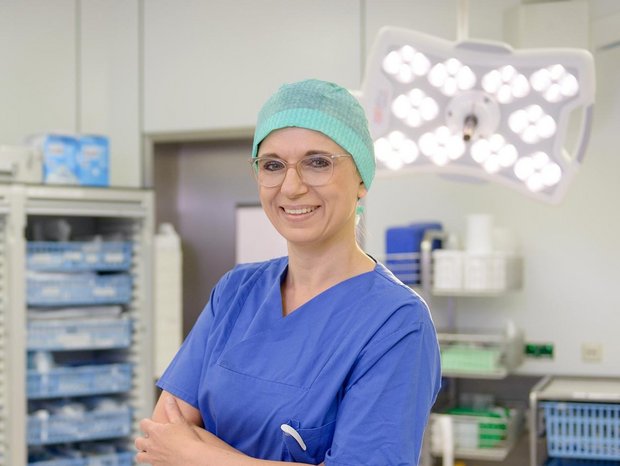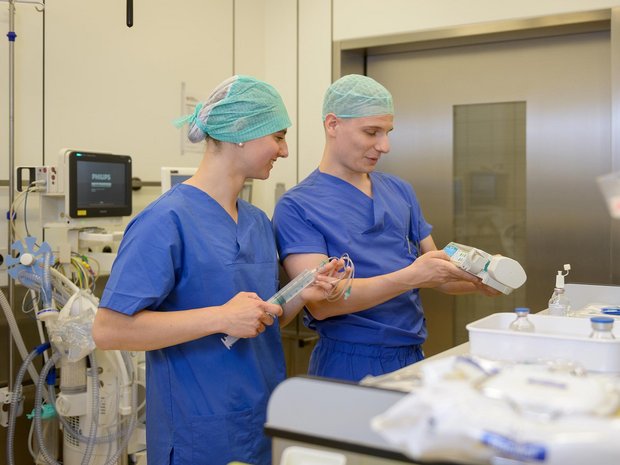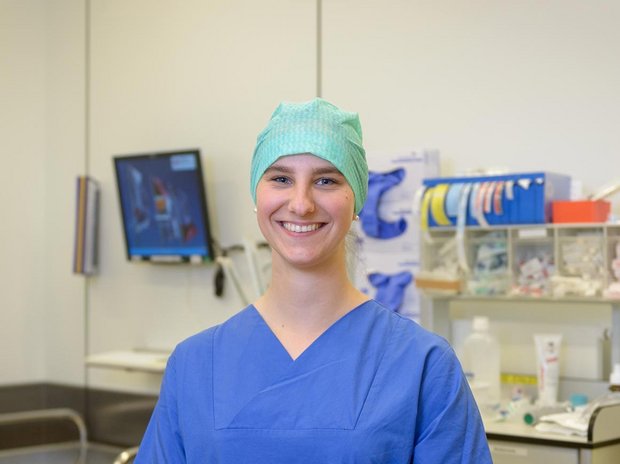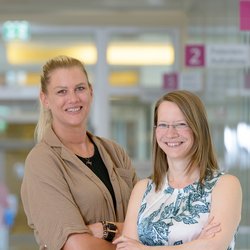You are here:

Surgical Theatre Assistants (STA)
are mainly employed in surgical centres of hospitals and clinics. Other areas of application are in endoscopy departments, emergency outpatient departments, Central Sterile Supply Departments (CSSD) and in centres for outpatient surgery.
As a member of the operating theatre team, STAs look after patients before, during and after surgical interventions or examinations. They prepare the interventions and organise the required medical devices, instruments and other necessary medical products. By providing qualified and skilled surgical assistance, they are responsible for ensuring that the operation runs quickly and smoothly and are thus partners of the physician in the operating theatre.
In the context of the surgery, STAs support the surgical team by taking on the role of a so-called stand-by person. If necessary, they provide additional equipment during the surgery, hand over further required instruments and other medical products and receive examination materials. In doing so, they bear a high degree of responsibility for compliance with hygiene regulations.
Regardless of the activity in a surgical or functional department, the STA is qualified to prepare instruments and other medical devices in the Central Sterile Supply Department (CSSD).
Within their work areas, the STA contributes to the development and implementation of quality and safety standards, thus ensuring a high level of safety for the patient. She is also responsible for complete, professionally correct documentation and carries out administrative and organisational activities efficiently and economically.

Anaesthesia technical assistants (ATA)
work in highly complex care areas with special and constantly developing technology, interdisciplinary cooperation with a wide range of professional groups and expert care for patients.
Tasks include the preparation, implementation and follow-up of anaesthesia in a team with an anaesthesiologist before and during an operation, as well as the care of patients in the recovery room, assistance with emergency treatment in the shock room, anaesthesia in other diagnostic areas, pain therapy and in-hospital emergency care.
ATAs are specially trained for this area and assist the anaesthetist and the anaesthetist as expert staff. Manual-technical and medical expertise, humanity, organisational skills and economic handling of material resources are required competences.
Your advantages with us at a glance
3. Best chances of being taken over
If you are looking for a secure future with a large employer with great opportunities for development, welcome to join us. As things stand today, there are already over 800 registered nurses working at the centre. Your chances of being accepted into this group after your apprenticeship are excellent.
This is how you can apply
Your application should include the following documents:
- Short cover letter
- Curriculum vitae
- School-leaving certificates or other certificates if available
If you are not a German citizen and are interested in an apprenticeship, please include your B2 language certificate and copies of your certified translated school-leaving certificates with your application. Please send us your application preferably via our application form.


